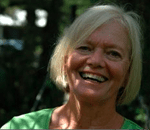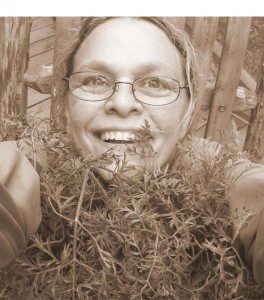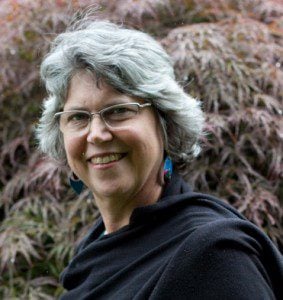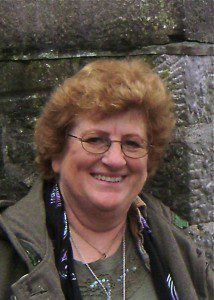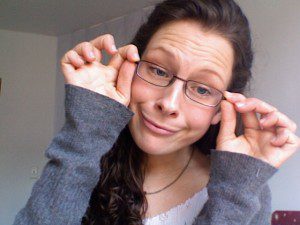 Looking back over your whole life, what was the most profound learning experience you ever had, either inside or outside the classroom?
Looking back over your whole life, what was the most profound learning experience you ever had, either inside or outside the classroom?
This is the question I have been asking all of the women I am interviewing for my PhD. I’m yet to properly look at the “data” but something I’ve already noticed: whilst many of the women have a lot of formal education under their belt, not one has mentioned anything that happened in a classroom.
In my own life, school has certainly played a large role – I’ve been in one for 23 of my 33 years – but as time has gone on I’ve become ambivalent about the role of schooling in my education. I know I’ve read a lot of books, written a lot of essays and talked a lot of talk. The question I have been asking myself this summer: is that really what profound learning is about?
 In 2010, one year into my PhD and teaching at a nearby college, I fell into a deep depression and began considering suicide. The reason for this depression escaped me until I got into an addiction recovery program and learned that in 20 years of schooling and 30 years of living, nobody had ever formally given me tools to guide my thoughts, feelings and actions (hence the addiction). The teachers in my life had told me many things about morality, discipline, and the good life. They had even encouraged me to think and to talk about that. Which is something, I suppose.
In 2010, one year into my PhD and teaching at a nearby college, I fell into a deep depression and began considering suicide. The reason for this depression escaped me until I got into an addiction recovery program and learned that in 20 years of schooling and 30 years of living, nobody had ever formally given me tools to guide my thoughts, feelings and actions (hence the addiction). The teachers in my life had told me many things about morality, discipline, and the good life. They had even encouraged me to think and to talk about that. Which is something, I suppose.
The thing is, I’m not convinced that’s how people learn.
I would say that the moment I really started learning about learning was when I entered my recovery program. The person guiding me through – who was himself an addict and had no training, other than having been through the program himself – taught me two of the most profound (and useful) things I’ve ever come across:
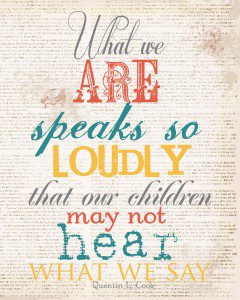 People can learn from what you say, but they’re much more likely to learn from what you embody. How many times as a kid did you watch parents and teachers tell you one thing whilst practicing the opposite? This hypocrisy is itself a profound (though unhealthy) lesson, because it teaches you to create a split between your public face and your private deeds, to be defensive when people point out your failings, and to be ashamed of them. This mentality is an obstacle for any learner, who needs to be free to make mistakes, to be imperfect, and to constantly fail to live up to her own standards.[1] The people with many years of sobriety in my program talk a lot about the principles they have learned and how they practice them, but they also constantly laugh at their failures. In doing this they are they are not only modelling the teachings, they are modelling the most profound lesson of all: humility.
People can learn from what you say, but they’re much more likely to learn from what you embody. How many times as a kid did you watch parents and teachers tell you one thing whilst practicing the opposite? This hypocrisy is itself a profound (though unhealthy) lesson, because it teaches you to create a split between your public face and your private deeds, to be defensive when people point out your failings, and to be ashamed of them. This mentality is an obstacle for any learner, who needs to be free to make mistakes, to be imperfect, and to constantly fail to live up to her own standards.[1] The people with many years of sobriety in my program talk a lot about the principles they have learned and how they practice them, but they also constantly laugh at their failures. In doing this they are they are not only modelling the teachings, they are modelling the most profound lesson of all: humility.
“Let us work together to embody the values that we treasure, and not worry about creating successful models that will transform other people.” Margaret Wheatley[2]
The reason why you teach is not for the benefit of anyone else, it’s for you. Being able to say something wise is not the same as being able to practice it; ask any developmental psychologist how they feel they’re doing as a parent. In fact, have you ever noticed that people often “teach” what they themselves need to learn? That’s certainly true for me. Now that I guide others through my recovery program, I can see that every time I work with them, I am reminding myself of all the things I still need to keep practicing. That means that teaching isn’t the opposite of learning; teaching is learning.
— — — — —
There you go. Those are the lessons I got from my most profound learning expereinece. And of course I share them with you, not because I think you will necessarily learn from reading these words, but because tapping them out this morning helps to remind me how I want to live today.
Looking back over your whole life, what was the most profound learning experience you ever had, either inside or outside the classroom?
Close your eyes for a couple of moments and ask yourself. Replies welcome below if you feel like it.
Laura Paskell-Brown is studying for a PhD in developmental psychology. She is also a member of the core circle at Women of Spirit and Faith. She lives in Brooklyn, but can’t wait to go to San Francisco in November for Alchemy: Occupy Your Sacred Self.
[1] See Kathryn Schulz’s TED talk: On being wrong or Brené Brown’s TED talk: The power of vulnerability
[2] Wheatley, M.J. (2012). So Far From Home: Lost and Found in our Brave New World, p.36. Berrett-Koehler : San Francisco






